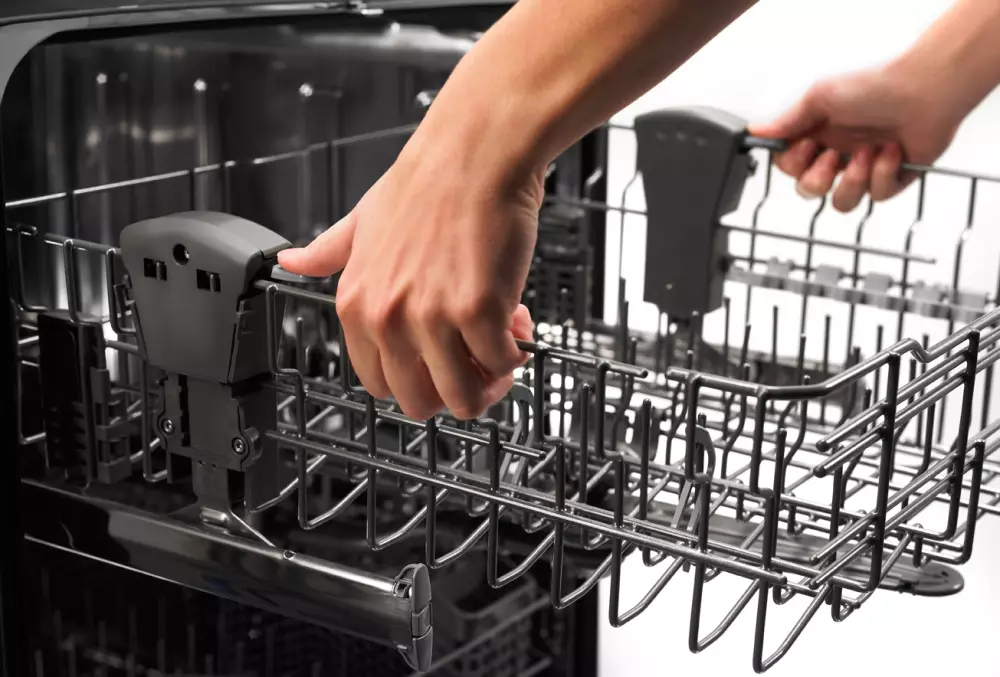How to Clean Your Air Conditioner Filters: 6 Easy Steps for a Healthy House
Cleaning your air conditioner filters is a necessary task. While you're protected from the harsh summer heat, you must clean your filter out regularly to ensure it's not clogged with dirt or dust. It's a simple process that takes only a few minutes and can save you money in the long run. We'll show you how to clean your air conditioner filter so that you can enjoy a healthy house this summer.
If you have an air conditioner, you know it's essential to keeping your house cool. But did you know that cleaning your air conditioner is just as important?
The filters on your air conditioner keep out dust and other allergens, but they can get clogged up with dirt and dust over time. It can mean a few things.
The air from your vents will be less effective at cooling the house, so your AC will have to work harder and use more energy to do what it should be doing naturally. In some cases, if airflow still seems poor after cleaning, it could point to a more serious problem. At that stage, air conditioning repair may be needed to get your system running properly again.
You could also breathe in more dust and bacteria than necessary, leading to allergies or other respiratory problems.
Follow these six simple steps to help keep your home healthy and cool this summer.
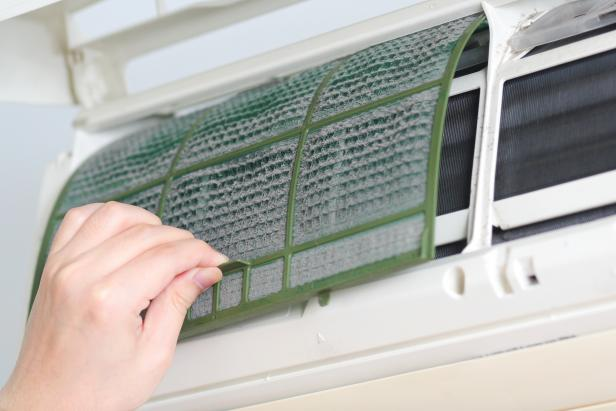
What You'll Need
Instructions
1. Turn your air conditioner off
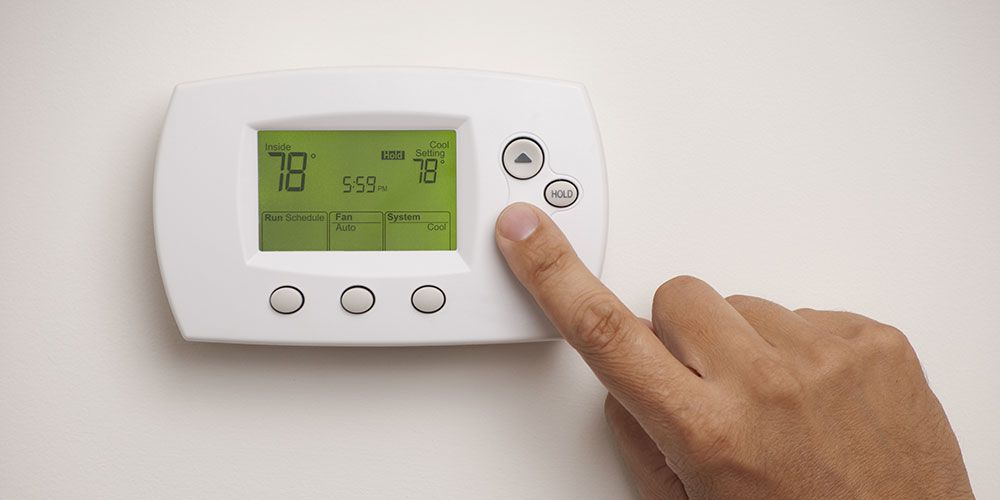
To avoid unwanted accidents, turn off the air conditioner before cleaning. It requires turning the wall switch off if you have a split-type air conditioning system.
When taking apart an electrical device, you should never do so while the power is on.
2. Read the instructions from your manual
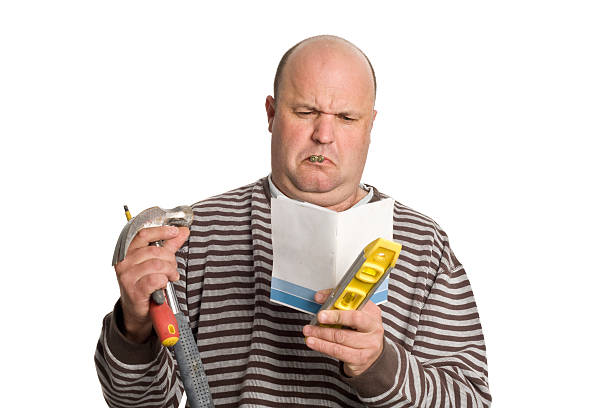
Check the manual for your air conditioner to see how to remove and clean the air filter.
Always start with the user manual that comes with your air conditioner—lost the manual? Many companies now offer PDF downloads of their manuals.
You'll need to open the front panel to get to the filter in a split system air conditioner. As long as it is open, you can do some spot cleaning.
Just open the Return Air Filter Grille to access the filter for a ducted air conditioning system.
3. Remove air filters from the air conditioner
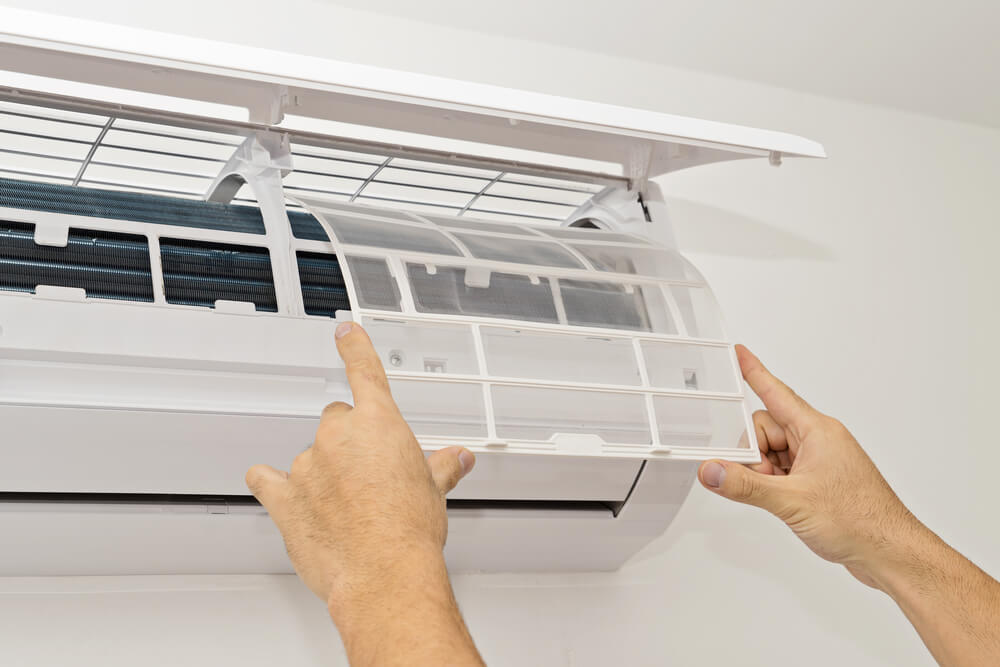
Filters for the air conditioner should be simple to access and remove. Make sure not to be excessively aggressive when removing the filters. Notice how they fit in the space as well. It will be helpful when it's time to replace the dirty air filters with clean ones.
You should check the filter for accumulation after you've taken it apart. Be aware that some devices feature more than one filter. If that's the case, you should examine each one.
If there is a lot of dust or dirt, continue cleaning the air filters. Otherwise, put the filters back in, reassemble the air conditioner, and recheck it in a month.
You should install a new air filter if your current one has visible symptoms of wear and tear, such as holes, tears, or stubborn gunk that won't come out.
4. Brush the air filters
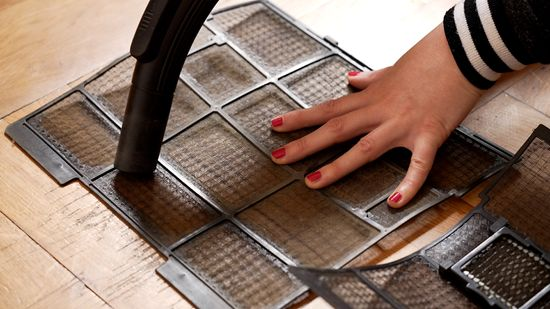
Shake or brush off the air filters outside. Brush over the air filter with the hose attachment of your vacuum cleaner, or a soft bristles brush, to collect as much dust and dirt as possible for disposal. Clean any vents that release air while you have the vacuum out.
Once you've cleaned it and are satisfied with its cleanness, put the filter back in, cover it, and set a reminder to recheck it in a month. If not, proceed to the next and last stage.
5. Wash the air conditioner filter thoroughly
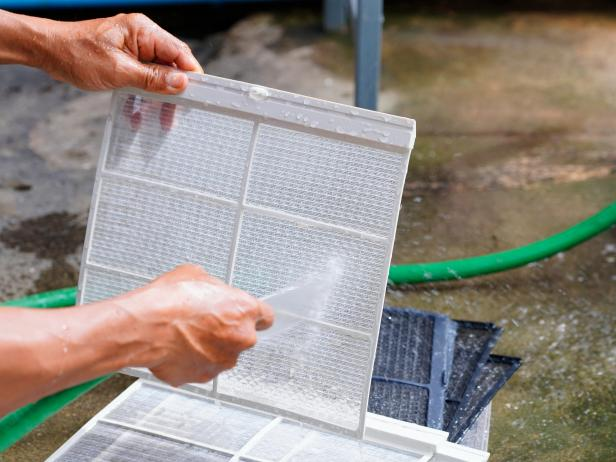
If your user instruction manual permits it, you can thoroughly clean the air filters by letting them soak in a sink full of water and white vinegar for an hour.
You can also clean your air conditioner filter with warm water and mild detergent or soap if they get dirty. Then, rinse the air filter with clean water to remove any residue.
6. Let the air filters dry completely
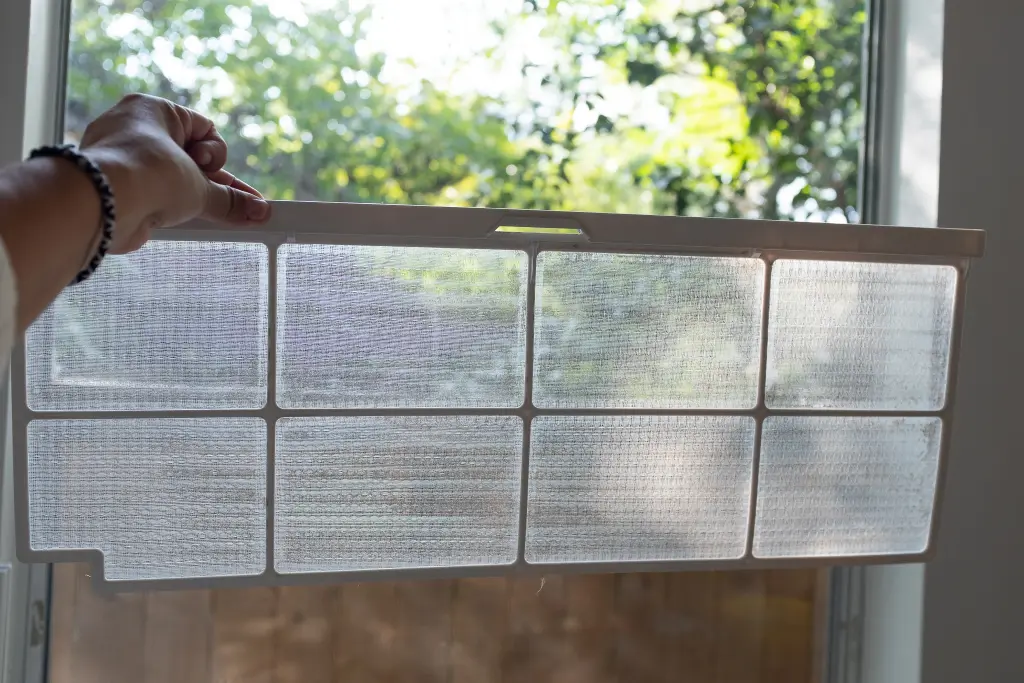
The last thing you want is wet air filters. So, after thoroughly rinsing the air conditioner filter, allow it to air dry for approximately 30 minutes. It will aid in preventing mould problems.
Ensure they are completely dry by allowing them to dry in the sun before replacing them in the air conditioning unit.
After replacing the filter and cover, record the cleaning date and set a reminder to clean or replace the filter following the manufacturer's instructions.
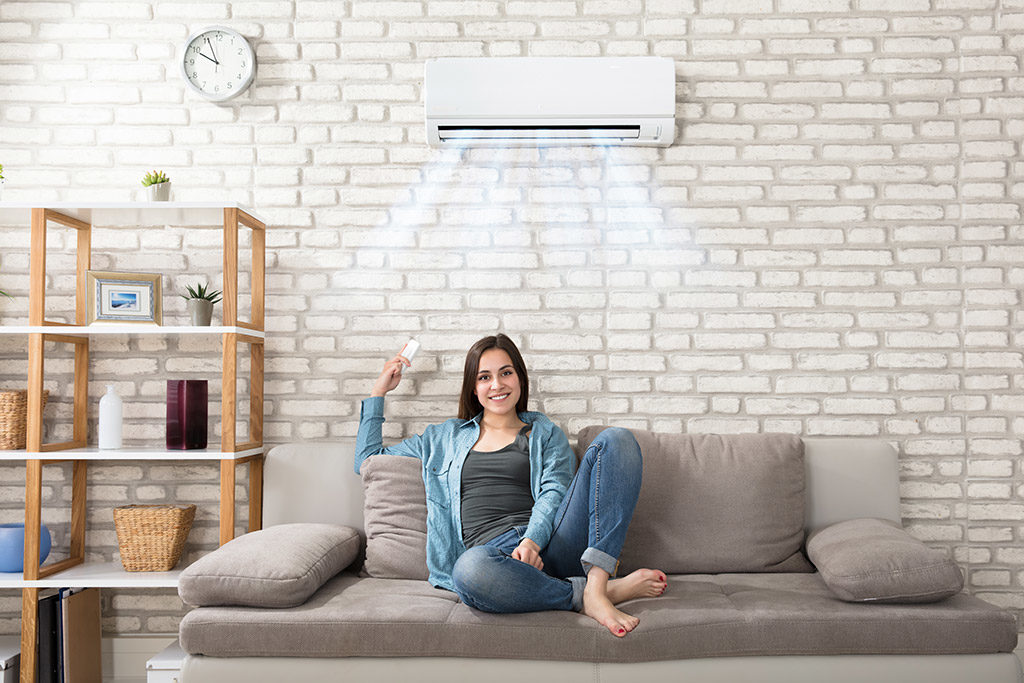
Your Air Conditioner is now Clean and Ready to Use!
We hope this guide has helped you understand how to clean your air conditioner filter. It can be a little overwhelming at first. But, the more you learn about your AC unit, the more you realize how much there is to take care of.
Don't worry. You can do this! Follow these six steps, and you'll be on your way to a healthier home.
If you need help making your house even cleaner, feel free to hire a professional house cleaning service.
You can also check out our ultimate bedroom cleaning guide. We provide tips and tricks to make your room sparkling and shiny in no time!
FAQs
How often should you clean filters in your air conditioner?
During the cooling season, you should clean or replace the air conditioning system filter or filters every month or two. Filters may need to be changed more frequently if the air conditioner is in continual use, is exposed to dusty environments, or if you have furry pets at your home.
Can a dirty air filter damage AC?
Filters that are clogged will increase the amount of energy required to cool your home. And this results in increased utility costs. In addition, when a dirty filter forces your air conditioning system to work extra, it causes severe wear and strain on your system.
Can I run my AC without a filter for one day?
The quick answer is that you can operate your air conditioner without a filter for a limited time. However, doing so for longer than 6 to 8 hours can damage your air conditioners and reduce the air quality inside your home.
How do I know if my AC filter is dirty?
The "white sheet test" is a creative method that may be used to evaluate whether or not the air filter needs to be cleaned. To do this, hang a fresh white sheet about 5 inches away from one of the vents and let it hang there for at least an hour.
If the sheet begins to turn grey, the air filter is dirty. When the sheet is greyer, the filter has more dust on it, and you will need to do regular cleaning or call for a professional service to improve the air quality.
